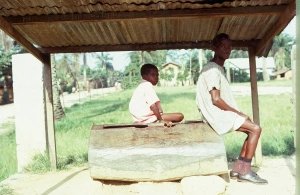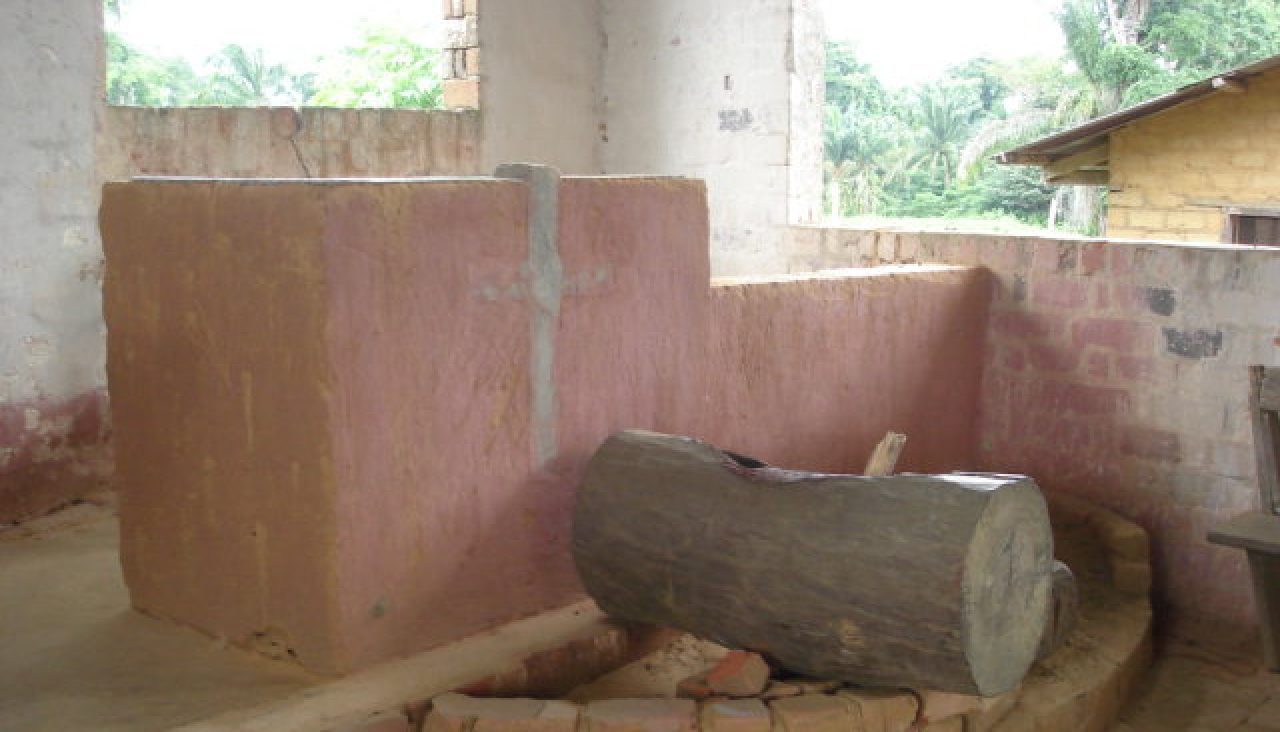
With the union of the sixty plus missionary-founded church bodies in 1969, the Church of Christ of Congo (Eglise du Christ au Congo – ECC) became the largest French-speaking Protestant Church in the world. Under the leadership of the Disciple Rev. Jean Bokeleale, elected President of the fledgling united Church in 1968, the Protestants gained equal status in the new nation that had been seen as predominantly Roman Catholic during the colonial era.
Protestant missionaries provided health and education services for decades with no subisdies from the Belgian colonial administration which exclusively supported Catholic services until 1946. At the time of independence in 1960, Protestants remained a minority religion although counting 25% of the population, about half the number of Congolese Catholics.
Rev. Bokeleale, who eventually took the title of Monsignor, succeeded in elevating the Protestants’ status in the new independent nation through adulation of the increasingly authoritarian rule of Mobutu Sese-Soko. In an excellent article on “Zaire Protestants and the Decline of Mobutu” a Congolese studying in Strasbourg wrote in 1991, “The Church (the E.C.C.) distinguished itself by its unconditional support for the regime and the person of President Mobutu”.[1] In a 1995 pastoral letter to the E.C.C. titled “The Eternal Marginalisation of the Protestants in Our Country is a Danger Not Only Today but Especially for Future Generations”[2], Mgr. Bokeleale presented his case for siding with Mobutu’s rule.
The majestic Protestant Cathedral erected next to the Congolese parliament building in Kinshasa as well as other ECC properties in the capital stand as testimony to the success of Mgr. Bokeleale’s political strategy. Among the continuing costs and consequences of this strategy is the seemingly “unconditional support” for the Kabila administration of the current ECC leadership of Mgr. Pierre Marini Bodho. Prior to marching to the Electoral Commission to declare his candidacy for President in last November’s election, Joseph Kabila and family participated in a service at the Protestant Cathedral led by Mgr. Marini. In a sermon which could only be construed as a blessing of the Kabila right to rule, Mgr. Marini declared that it is God who “chooses the one to rule and communicates the program to be undertaken”.
But lest we be seen as judging past or present Congolese Church leadership, let us consider U.S. complicity in authoritarian rule in the country. Let us consider the fact that since 1960 it is the U.S. who has been the principal source of foreign aid and has played the leading role in post independence events in Congo from the assassination of Patrice Lumumba to the elevation of Joseph Kabila to his 2006 position as the youngest head of state in the world. Let us consider that the U.S. policy emphasis on security in Congo is in part responsible for the warfare in Eastern Congo that has claimed the lives of over five million people in the last fourteen years.
Lest we American Protestant Christians who love Congo continue to content ourselves with thoughts

that we can do nothing about political change in Congo, let us consider what we are doing now to support the courageous Congolese who declare that the election was a travesty of democracy. Yes, it is true that our holy scripture and our reading of history tells us that it is the Congolese who will liberate themselves from oppression and foreign control of their resources. But we who know Congo and Congolese for longer than policy makers in D.C. and who represent church bodies with a longer history in Congo than even the U.S. government, we should have something to say and be able to do something more about the current crisis in Congo than wring and throw up our hands about the continued exploitation and violence in Congo.
We can make clear that we who believe in the God of liberation and justice stand in support of those Congolese who expect and demand political leaders to represent their highest aspirations and be held accountable for what they do with the power entrusted to them. We can make clear that we believe in the Congolese people’s right to self rule and their capacity to rule in a manner that furthers all the people’s sharing in the country’s wealth. We can make clear that our faith promises a bright future for Congo, for the Congolese people and for all of Africa. By doing so, we will have made clear we believe in Congo.
[1]“Protestantisme Zairois et Declin du Mobutuisme”, Philippe Kabongo-Mbaya, Researcher at University of Strasbourg, Politique Africaine, 1991
[2] “La marginalization eternelle des Protestants dans notre pays est un danger non seulement aujourd’hui mais surtout pour les generations futures”, Lettre pastorale, Bokeleale Itofo Bokambanza, 1995, Kinshasa publication of the Eglise du Christ au Zaire
Here’s a prize for those who have read this far; click on the blue type that follows to access the web link for last Sunday’s CBS News 60 Minutes report from Kinshasa: 60 Minutes Presents the Kimbanguiste Symphony Orchestra . Go to the 13 minute video at the bottom of the page for the “Ode to Joy” performed as you have never heard and felt it before.

